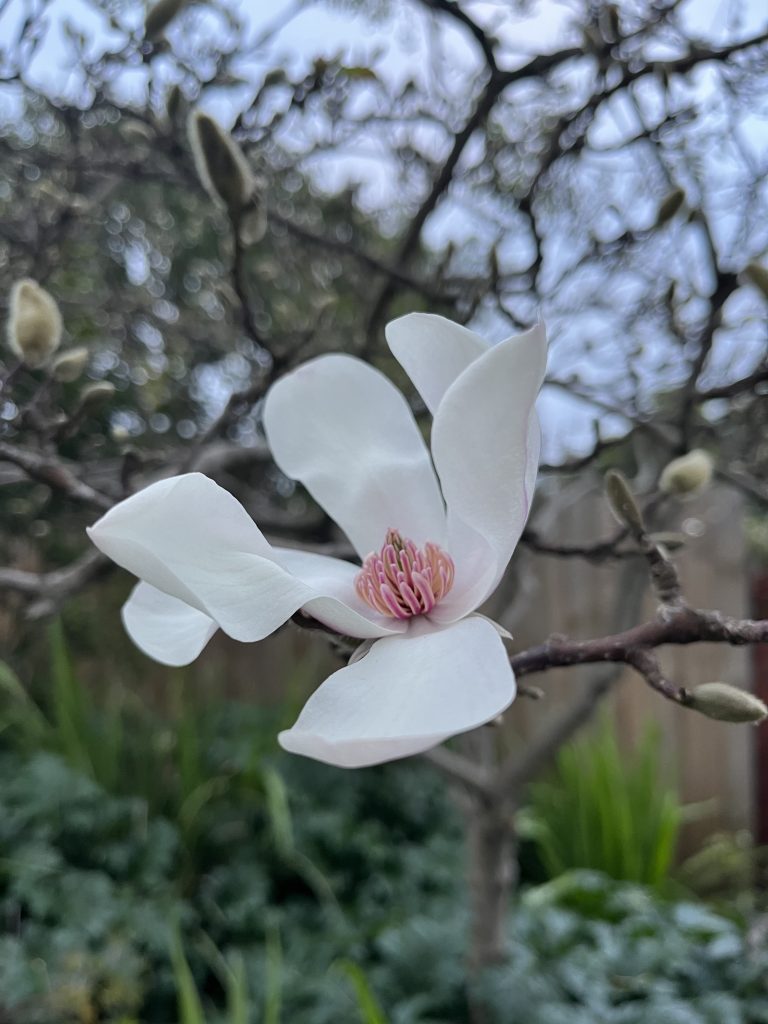Names and words bear traces that are not the same for everyone. By naming our ghosts, might we perhaps manage to free ourselves of them, a little? Neige Sinno
How do we identify our ghosts, those that creep through the recesses of our minds and pop up when we least expect.
Uncomfortable memories that haunt us still.
I still can’t believe Michael is dead. A man who chose to employ me from a group of others for what I now consider subjective reasons. We clicked. A shared Catholic heritage we each had rejected, and a sensibility that spoke to a love of words and of people.
I would have chosen him as a partner if I had the chance but in no time we’d have clashed. His love of travel for one. Though I remember him telling me once that when people look forward to their trips abroad they forget to recognise or remember there are still 24 hours to every day. You still need to find food to eat and places to sleep. Even if you book ahead of time, it’s not the same as the security of home. That predictable sense of not having to wonder where you might sleep each night or what you might eat. It’s easy enough to imagine. The horrors of homelessness.
The uncertainty of when and where.
There are many Michaels in my life, a brother a nephew, friends. Oh, to be named after an arch angel. One of the warriors for Christ and a good angel at that. Not like Lucifer, the bad angel.
I thought of Lucifer when I read the newspaper headline this morning. It talked of a group of neo-Nazis holding a meeting after a parade in a small country town.

They come out furtively and meet outside the cities, to build up strength to hide and to be seen.
The article featured the back of a man, shirtless, his back bristling with muscles along with his arms. And around his waist he’d tied a black windcheater, on which was printed a photo of Hitler.
And I thought of the series I’m watching at present Outrageous. The story of the Mitford sisters, six sisters and one brother in a healthy, once wealthy British family who fall on ill fortune as the father, Farv, is a poor manager of finances and must sell the family estate.
The Mitfords hob knob with royalty and the eldest becomes a famous novelist, but not before the second eldest brings shame onto the family by marrying in secret the right-wing leader of the fascist army, Sir Oswald Mosley. And one still younger sister Unity, falls in love with and befriends none other than Hitler himself. The Führer takes a fancy to Unity in the years leading to the second world war, while still another sister Rebecca or Decca, becomes a communist and escapes to Spain with her cousin/friend Edmund to fight the good fight in Franco’s war. Such a diverse group of people and all conceived and raised by the same parents. Their politics could not be different.
It reminds me of my own group of nine. We too share political differences as vast as the sea. But perhaps not quite so polarised as the Mitfords. Although some of my siblings, at least one, is seriously wealthy and seem to have forgotten how other people struggle, most of us maintain fixed memories of what it’s like to be poor. What it’s like to struggle and what it’s like to need the help of others. And to help others. Though none of us, to my knowledge, are fascists and we all hate war.
You must hate war if you grew up under the shadow of the last world one. Imagine what it’s like for people born in war zones that never cease to be as such. A man on the radio in Gaza talking about how hard it is for him and his family to be constantly on the move. Having to move his children like a cat trying to find a safe place for her kittens. And other people have caused this disaster.
And I still cannot understand the cruelty of people who forget that we’re all human and we’re all in this together.
When we find names for our children, when we identify or discard our own names, we choose an identity that matches something of our hopes for the future. Something of our shared struggles for identity.
Funny that the daughter in the Mitfords whose name is Unity should prove so divisive. That a friend of mine whose name means hope should leave me feeling at times hopeless. At least in so far as we cannot connect when once it seemed we did.
And that’s a whole other thing. The relentless way things change. My friend insists she has not changed. People don’t change, she says, and once again we’re in that weird territory of radical disagreement. I can’t think of anything more untrue.
People change all the time from one day to the next. They may be stubborn, and hold firm to rigid views or beliefs, but still they change. They get older. Their bodies sag and droop. Their sharp-eyed childlike clarity begins to fade under the weight of life’s demands.
Griefs creep in unbidden, all the loss they encounter. Their knowledge increases along with traumatic episodes that alter their perspectives. People change, even if their fundamental DNA, the building blocks of their bodies remain the same. While the ghosts hiding in their names come out at any opportunity to haunt us all.

